If you are recovering from an injury, trying to understand the often-complex terminology used by insurance companies and attorneys can be overwhelming. Van Sant Law designed this legal glossary to be a helpful tool to define common personal injury legal terms in plain English. Remember that every state has its own personal injury laws, so it’s important to understand Georgia-specific personal injury processes and vocabulary.
Glossary of Terms
- Personal Injury. Physical harm to a person’s body or mental suffering, incurred due to someone else’s negligence. Georgia personal injury claims fall under tort law. Injured persons can file lawsuits against responsible parties to seek compensation for their injuries.
- Personal Injury Litigation. This term generally refers to lawsuits filed by people injured in personal injury cases against the responsible parties. In personal injury litigation, the injured party seeks compensation (“damages”) for their losses.
- Filing a Personal Injury Lawsuit. When someone injured in a Georgia personal injury accident retains a lawyer to help them, the injured person (“plaintiff”) can formally bring a civil complaint against the responsible party (“defendant”), claiming that the defendant was negligent or careless, resulting in injury to the plaintiff.
- Damages. Compensation awarded to plaintiffs who win their personal injury lawsuits. Georgia’s personal injury law includes two types of damages: compensatory and punitive.
- Compensatory Damages. This type of damages is designed to compensate the victim for their financial losses related to the injury, including payment for medical costs, lost wages, damaged property, pain and suffering, and impact on quality of life.
- Punitive Damages. This type of damage award is intended to punish the defendant for their actions. Punitive damages are generally only a possibility in situations where the defendant acted willfully, maliciously, or wantonly, committed fraud, oppressed the victim, or was negligently indifferent to the potential results of their actions.
- Contributory Negligence. In Georgia, a plaintiff who was partially responsible for the accident that caused their injuries may still be able to recover a reduced amount of damages from the defendant, based on the percentage of fault assigned to each party.
- Claim. The formal legal filing made by the injured person, demanding compensation for their losses.
- Claim Adjuster. The defendant’s insurance company will assign a representative to the claim. The claim adjuster investigates and is the person to initially authorize payment for the injured person’s medical expenses.
- Compensation. Also referred to as “damages,” this is the money awarded to injured victims who win their personal injury claims.
- Fault. Fault refers to responsibility for the victim’s injuries. In Georgia personal injury law, fault can result from ignorance, carelessness, negligence, or lack of skill.
- Judgment. When a lawsuit is finalized, the judgment documents the decision regarding who was at fault and whether/how damages should be awarded.
- Subrogation. A third party (often a medical insurer) may sue for damages to recoup payments made for medical bills or other expenses, under the legal right of subrogation.
- Negligence. Failing to exercise reasonable or proper care.
- Settlement. When both the plaintiff and defendant agree on the compensation to be paid for a personal injury claim.
- Defendant. A person or legal entity accused of being responsible for causing harm to the injured person. The defendant is the party who is sued in a personal injury claim.
- Liability. Responsibility for negligence, carelessness, or intentional actions resulting in injury to the plaintiff.
- Plaintiff. The party filing a personal injury claim against (suing) the defendant, claiming they suffered losses and that the defendant is liable.
- Pain and Suffering. Physical, mental, or emotional harm suffered by the plaintiff.
- Medical Expenses. The plaintiff’s expenses related to treating the injuries which resulted from the underlying personal injury accident.
- Lost Wages. Lost income resulting from the victim’s injuries. This may include salary and regular wages, sales commissions, or benefits.
- Expert Witness. Someone with specific knowledge or expertise in a technical area related to the underlying accident. Expert testimony can help create a strong case.
- Adjudicate. Typically, the judge’s role; to decide the outcome of a personal injury claim.
Contact Van Sant Law for Assistance
At Van Sant Law, we understand that you may have questions about other terms not identified in this legal glossary, or questions about the personal injury claims process in general.
We have been serving Georgia personal injury accident victims since 2003, helping them get back on their feet and recover from their injuries. We are committed to helping our clients through challenging times. Whether you have questions about your rights, know you want to file a claim for damages, or simply want a better understanding of one or more of these dictionary terms, we are here to help.
Let the knowledgeable, compassionate attorneys at Van Sant Law help you navigate the complexities of personal injury law. Contact us to take the first step toward successful resolution of your claim!

.2410171603550.png)



.2410171551550.png)
